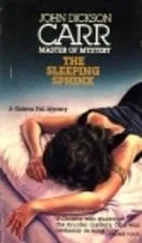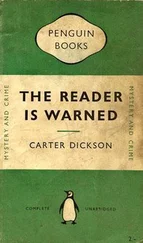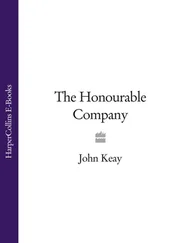John le Carré - The Honourable Schoolboy
Здесь есть возможность читать онлайн «John le Carré - The Honourable Schoolboy» весь текст электронной книги совершенно бесплатно (целиком полную версию без сокращений). В некоторых случаях можно слушать аудио, скачать через торрент в формате fb2 и присутствует краткое содержание. Год выпуска: 1977, ISBN: 1977, Жанр: Триллер, на английском языке. Описание произведения, (предисловие) а так же отзывы посетителей доступны на портале библиотеки ЛибКат.
- Название:The Honourable Schoolboy
- Автор:
- Жанр:
- Год:1977
- ISBN:0-340-49490-5
- Рейтинг книги:5 / 5. Голосов: 1
-
Избранное:Добавить в избранное
- Отзывы:
-
Ваша оценка:
- 100
- 1
- 2
- 3
- 4
- 5
The Honourable Schoolboy: краткое содержание, описание и аннотация
Предлагаем к чтению аннотацию, описание, краткое содержание или предисловие (зависит от того, что написал сам автор книги «The Honourable Schoolboy»). Если вы не нашли необходимую информацию о книге — напишите в комментариях, мы постараемся отыскать её.
The Honourable Schoolboy — читать онлайн бесплатно полную книгу (весь текст) целиком
Ниже представлен текст книги, разбитый по страницам. Система сохранения места последней прочитанной страницы, позволяет с удобством читать онлайн бесплатно книгу «The Honourable Schoolboy», без необходимости каждый раз заново искать на чём Вы остановились. Поставьте закладку, и сможете в любой момент перейти на страницу, на которой закончили чтение.
Интервал:
Закладка:
The little they did know was appalling. Such humdrum matters as personnel, for example, took on a horrific dimension. Smiley had blown staff to dismiss, and blown residencies to dismantle; poor Tufty Thesinger's in Hong Kong for one, though being pretty far removed from the anti-Soviet scene, Hong Kong was one of the last to go. Round Whitehall, a terrain which like Smiley they deeply distrusted, they heard of him engaged in bizarre and rather terrible arguments over terms of severance and resettlement. There were cases, it seemed — poor Tufty Thesinger in Hong Kong once more supplied the readiest example where Bill Haydon had deliberately encouraged the over-promotion of burnt-out officers who could be counted on not to mount private initiatives. Should they be paid off at their natural value, or at the inflated one which Haydon had mischievously set on them? There were others where Haydon for his own preservation had confected reasons for dismissal. Should they receive full pension? Had they a claim to reinstatement? Perplexed young Ministers, new to power since the elections, made brave and contradictory rulings. In consequence a sad stream of deluded Circus field officers, both men and women, passed through Smiley's hands, and the housekeepers were ordered to make sure that for reasons of security and perhaps aesthetics, none of these returnees from foreign residencies should set foot inside the main building. Nor would Smiley tolerate any contact between the damned and the reprieved. Accordingly, with grudging Treasury support from the Welsh Hammer, the housekeepers opened a temporary reception point in a rented house in Bloomsbury, under cover of a language school (Regret No Callers Without Appointment) and manned it with a quartet of pay-and-personnel officers. This body became inevitably the Bloomsbury Group, and it was known that sometimes for a spare hour or so Smiley made a point of slipping down there and, rather in the manner of a hospital visitor, offering his condolences to faces frequently unknown to him. At other times, depending on his mood, he would remain entirely silent, preferring to perch unexplained and Buddha-like in a corner of the dusty interviewing room.
What drove him? What was he looking for? If anger was the root, then it was an anger common to them all in those days. They could be sitting together in the raftered rumpus room after a long day's work, joking and gossiping; but if someone should let slip the names of Karla or his mole Haydon, a silence of angels would descend on them, and not even cunning old Connie Sachs, the Moscow-gazer, could break the spell.
Even more affecting in the eyes of his subordinates were Smiley's efforts to save something of the agent networks from the wreck. Within a day of Haydon's arrest, all nine of the Circus's Soviet and East European networks had gone cold. Radio links stopped dead, courier lines dried up and there was every reason to say that, if there had been any genuinely Circus-owned agents left among them, they had been rolled up overnight. But Smiley fiercely opposed that easy view, just as he refused to accept that Karla and Moscow Centre between them were invincibly efficient, or tidy, or logical. He pestered Lacon, he pestered the Cousins in their vast annexes in Grosvenor Square, he insisted that agent radio frequencies continue to be monitored, and despite bitter protest by the Foreign Office — Roddy Martindale as ever to the fore — he had open-language messages put out by the overseas services of the BBC ordering any live agent who should happen to hear them and know the codeword, to abandon ship immediately. And, little by little, to their amazement, came tiny flutterings of life, like garbled messages from another planet.
First, the Cousins, in the person of their suspiciously bluff local station chief Martello, reported from Grosvenor Square that an American escape line was passing two British agents, a man and a woman, to the old holiday resort of Sochi on the Black Sea, where a small boat was being fitted in readiness for what Martello's quiet men insisted on calling an 'exfiltration assignment'. By his description, he was referring to the Churayevs, linchpins of the Contemplate network which had covered Georgia and the Ukraine. Without waiting for Treasury sanction, Smiley resurrected from retirement one Roy Bland, a burly ex-Marxist dialectician and sometime field agent, who had been the network's case officer. To Bland, who had come down heavily in the fall, he entrusted the two Russian leash-dogs de Silsky and Kaspar, also in mothballs, also former Haydon protégés, to make up a standby reception party. They were still sitting in their RAF transport plane when word carne through that the couple had been shot dead as they were leaving harbour. The exfiltration assignment had fallen through, said the Cousins. In sympathy, Martello personally telephoned Smiley with the news. He was a kindly man, by his own lights, and, like Smiley, old school. It was night-time, and raining furiously.
'Now don't go taking this too hardly, George,' he warned in his avuncular way. 'Hear me? There's fieldmen and there's deskmen and it's up to you and me to see that the distinction is preserved. Otherwise we all go crazy. Can't go down the line for every one of them. That's generalship. So you just remember that.'
Peter Guillam, who was at Smiley's shoulder when he took the call, swore later that Smiley showed no particular reaction: and Guillam knew him well. Nevertheless, ten minutes later, unobserved by anybody, he was gone, and his voluminous mackintosh was missing from its peg. He returned after dawn, drenched to the skin, still carrying the mackintosh over his arm. Having changed, he returned to his desk, but when Guillam, unbidden, tiptoed in to him with tea, he found his master, to his embarrassment, sitting rigidly before an old volume of German poetry, fists clenched either side of it, while he silently wept.
Bland, Kaspar and de Silsky begged for reinstatement. They pointed to little Toby Esterhase, the Hungarian, who had somehow gained readmittance, and demanded the same treatment, in vain. They were stood down and not spoken of again. To injustice belongs injustice. Though tarnished, they might have been useful, but Smiley would not hear their names; not then; not later; not ever. Of the immediate post-fall period, that was the lowest point. There were those who seriously believed — inside the Circus as well as. out — that they had heard the last beat of the secret English heart.
A few days after this catastrophe, as it happened, luck handed Smiley a small consolation. In Warsaw in broad daylight a Circus head agent on the run picked up the BBC signal and walked straight into the British Embassy. Thanks to ferocious lobbying by Lacon and Smiley between them he was flown home to London the same night disguised as a diplomatic courier, Martindale not withstanding. Mistrusting his cover story Smiley turned the man over to the Circus inquisitors who, deprived of other meat, nearly killed him but afterwards declared him clean. He was resettled in Australia.
Next, still at the very genesis of his rule, Smiley was compelled to pass judgement on the Circus's blown domestic out-stations. His instinct was to shed everything: the safe houses, now totally unsafe; the Sarratt Nursery, where traditionally the briefing and training of agents and new entrants was conducted: the experimental audio laboratories in Harlow; the stinks-and-bangs school in Argyll; the water school in the Helford Estuary, where passé sailors practised the black arts of small-boat seacraft like the ritual of some lost religion; and the longarm radio transmission base at Canterbury. He would even have done away with the wranglers' headquarters in Bath where the codebreaking went on.
'Scrap the lot,' he told Lacon, calling on him in his rooms.
'And then what?' Lacon enquired, puzzled by his vehemence, which since the Sochi failure was more marked in him.
Читать дальшеИнтервал:
Закладка:
Похожие книги на «The Honourable Schoolboy»
Представляем Вашему вниманию похожие книги на «The Honourable Schoolboy» списком для выбора. Мы отобрали схожую по названию и смыслу литературу в надежде предоставить читателям больше вариантов отыскать новые, интересные, ещё непрочитанные произведения.
Обсуждение, отзывы о книге «The Honourable Schoolboy» и просто собственные мнения читателей. Оставьте ваши комментарии, напишите, что Вы думаете о произведении, его смысле или главных героях. Укажите что конкретно понравилось, а что нет, и почему Вы так считаете.








